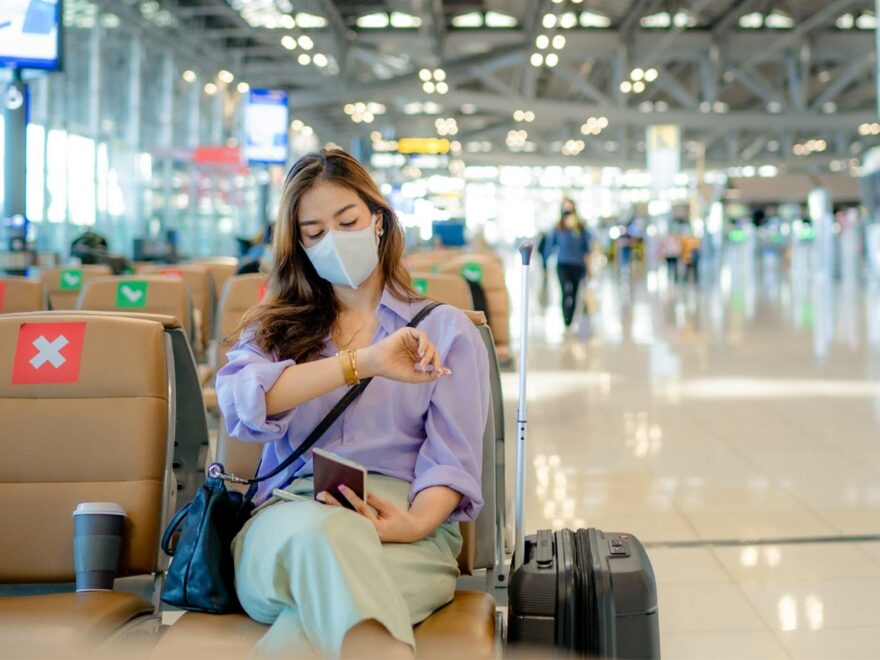AIRLINE passengers could be in line to get compensation if their short flight is delayed by just an HOUR under new plans.
Transport Secretary Grant Shapps has tabled proposals to allow more customers who endure hold-ups on flights within the UK to be able to claim money back.


At the moment, the UK uses the European Union's EU261 rules – meaning passengers on flights shorter than 932 miles can claim £220 for delays of more than three hours, but nothing for shorter hold-ups.
But with new powers in his hands thanks to Brexit, the Cabinet minister is now mulling replacing the system with a model similar to the one adopted by rail and ferry operators, which links compensation amounts to the cost of travel.
Under the Department for Transport's (DfT) plan, which is under consultation, passengers would be entitled to 25 per cent of their ticket price back for a delay between one and two hours.
For a hold-up of more than two hours but less than three, customers would be able to claw back half of the cash they forked out.
And for those forced to wait more than three hours for their plane, a full refund would be handed over.
The DfT did not specify which categories delays of exactly two and three hours would fall into.
Most read in The Sun
UNITED LATEST Dembele linked with United move, Cristiano Ronaldo joins United WhatsApp
Armed police rush to estate & locals told to stay indoors amid 'incident'
Mason Greenwood arrested on suspicion of rape & GBH after domestic abuse claim
Danniella Westbrook threatens BBC with legal action after EastEnders recasts her
But airlines would avoid paying compensation for disruption caused by events outside their control, such as extreme weather, security alerts and restricted air traffic control operations.
Mr Shapps said: "People deserve a service that puts passengers first when things go wrong, so today I've launched proposals which aim to bolster airline consumer protections and rights.
"We're making the most of our Brexit dividend with our new freedoms outside of the EU, and this review will help build a trustworthy, reputable sector."
Other proposals being considered by the government to protect passengers' rights include making it mandatory for airlines operating in the UK to sign up to an alternative dispute resolution (ADR) scheme – which could help more people receive the refunds and compensation they are entitled to.
ADR programmes have helped thousands of passengers escalate complaints without going to court, but membership by carriers is voluntary.
The government is also deciding whether to give the Civil Aviation Authority (CAA) more power to enforce consumer laws through the ability to directly fine airlines for breaches.
CAA chief executive Richard Moriarty said the consultation is a "clear indication of the need to enhance our enforcement powers, and bring us in line with other regulators".
He added: "The proposals will improve passenger rights and equip the Civil Aviation Authority with the appropriate tools to act swiftly and effectively for the benefit of consumers."
Rocio Concha, director of policy and advocacy at consumer group Which?, said trust in travel firms "plummeted" when the coronavirus pandemic began as some airlines "ignored their legal obligations and refused to pay refunds for cancelled flights".
'WELCOME FIRST STEP'
She went on: "This consultation is a welcome first step that must improve and strengthen consumer rights and protections so that complaints are dealt with fairly and promptly, and that passengers receive the money they are due quickly and without unnecessary hassle.
"It is also vital that the system is backed up by a regulator with the powers it needs to take swift and strong action against any company that breaks consumer law."
Mr Shapps is also proposing to require airlines to pay the full cost of repairing or replacing wheelchairs and mobility scooters lost or damaged during domestic flights.
Companies are only currently obliged to pay passengers up to around £1,200 for damage to or loss of their belongings under the terms of the Montreal Convention – despite some wheelchairs cost more than £25,000.
Caroline Stickland, chief operating officer at disability group Transport for All, said preventing someone from using their wheelchair "can mean a total loss of independence".
She went on: "Much more needs to be done to safeguard against this, including fair recourse to compensation for disabled passengers.
"We welcome these proposals and hope they mark the start of further positive changes in this area."
Source: Read Full Article




